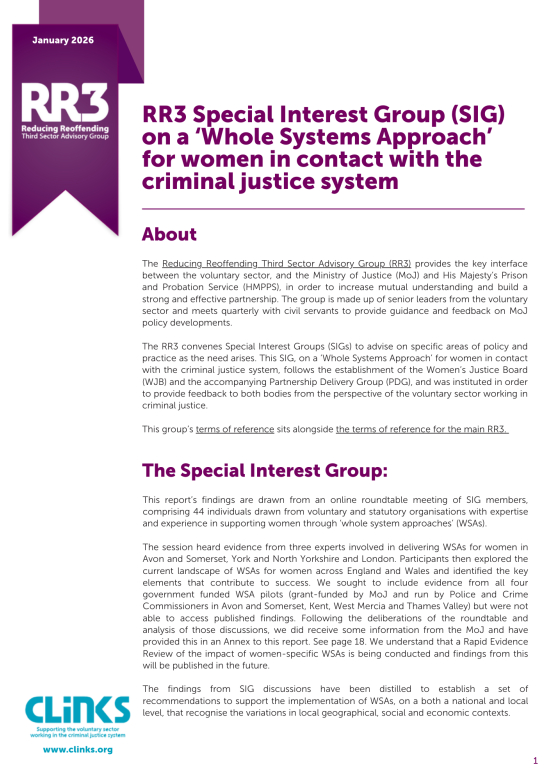Following our summary of Her Majesty’s Prison and Probation Service’s (HMPPS) National Framework for Prison Regimes and Services, this blog provides information on what the National Probation Service (NPS) will look like after the pandemic, based on the Probation Roadmap to Recovery published by HMPPS and the National Probation Service (NPS) on Tuesday 2nd June.
- As many readers will know, the NPS adapted its working practices in the light of Covid-19 by:
- Asking most frontline staff to work from home for most of the week to supervise people remotely by telephone
- Running probation offices on a skeleton-staffing basis
- Conducting doorstep visits with people who pose a high-risk and medium-risk with domestic abuse or other safeguarding issues (responsible officers talk to the supervised person by telephone but require them to be visible through the window of their property)
- Suspending groupwork programmes and unpaid work.
As with the national framework for prisons, the probation roadmap to recovery promises “measured and incremental” progress in delivering more services. HMPPS and the NPS have also committed themselves to learning from the enforced innovation of dealing with the pandemic in creating a “new normal” and a more resilient probation service. The organisations have commissioned research into staff and service user experiences of more remote offender management during the lockdown period, particularly focusing on the experiences of people with protected characteristics.
The roadmap sets out four key principles to maximise staff and service user safety and ensure that changes are well planned and understood before they are implemented:
1. We will take a cautious approach to changes that relax our contingency measures in probation work, ensuring this is only done when we are confident it is safe to do so
2. Unless in exceptional circumstances, we will give staff at least two weeks’ notice before any significant relaxation of current measures comes into effect, so there is time to prepare
3. We will ensure we are working to deliver the best possible probation services we can in the specific operating circumstances we are working in, embracing innovation, rather than always returning to previous ways of working
4. We will ensure that probation recovery is planned in a coordinated way with the plans for prison recovery, with other parts of the criminal justice system and with our delivery partners.
The roadmap sets out a three step process.
Step one
This is the current situation with staff continuing to work from home wherever possible and office environments adapted to enable social distancing.
Step two
The roadmap envisages that some of the first changes will include:
- Scaling back doorstep supervision and scaling up face-to-face supervision. The capacity of probation officers to supervise more people will be increased by extending operating hours.
- Adapt probation offices by fitting protective screens for interview rooms and re-designing offices to use back-to-back or side-to-side (as opposed to face-to-face) working.
- Scaling up court work as needed as court workloads increase again.
- Restart unpaid work and interventions on a limited scale – looking at singleton unpaid work placements and the possibility of delivering programmes remotely.
- Restarting Offender Management in Custody by redeploying staff back to prisons in line with prison regime changes.
Step three (no earlier than 4 July)
This step is basically returning to full face-to-face operation in an incremental and co-ordinated manner with all safety precautions utilised as needed.
Clinks has encouraged HMPPS and the NPS to share how these changes will be communicated with partners and service users on a local basis. We have also asked for more information on how the recovery roadmap looks for Community Rehabilitation Companies (CRCs) since most of the voluntary sector probation work is with CRCs, either in supply chains or via direct referrals.
We have specifically asked that partner agencies and service users receive the same two weeks’ notice as probation staff about planned changes.
Clinks has also urged HMPPS and the NPS to undertake detailed service user feedback via an impartial third party organisation about possible innovations and any future plans for increased remote working. We have asked that this feedback pays particular attention to the views of people with protected characteristics and especially black, Asian and minority ethnic (BAME) service users who we know are both discriminated against within the criminal justice system and disproportionately adversely affected by coronavirus, as well as those facing multiple disadvantage for who remote contact might not provide the level of support they need.
Similarly, given the disproportionate impact of Covid-19 on BAME people, we would like to see a commitment from HMPPS and the NPS to ensure that extra consideration is given to protect BAME service users, voluntary sector staff and volunteers from the virus.
Where the nature of provision required of contractors is to be changed (i.e. to deliver programmes or unpaid work), we would like to see a commitment from HMPPS and the NPS to ensure that changes in contracts are administered fairly and in full consultation with providers, acknowledging the financial strain that coronavirus has put the voluntary sector under and that most current contracts for probation services are already under-priced and subsidised by those providers.
What's new
Blogs
Dr Summer Alston-Smith appointed as new CEO of Clinks
Publications
RR3 Special Interest Group (SIG) on a ‘Whole Systems Approach’ for women in contact with the criminal justice system
The RR3 SIG drives a Whole Systems Ap
Latest on X
The role is for a leader from an organisation focused on racially minoritised people, with expertise in service delivery, policy, advocacy, or related areas in criminal justice. Racial disparities are present at every CJS stage. This role ensures these voices are central in shaping policy to help address and eradicate them. Apply by Mon 18 Nov, 10am. More info: https://www.clinks.org/voluntary-community-sector/vacancies/15566 #CriminalJustice #RR3 #RacialEquity

